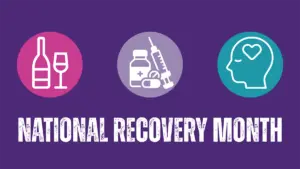Attachment therapy is a powerful tool used in addiction recovery to help individuals heal deep-rooted emotional wounds and rebuild trust in themselves and others. This therapeutic approach is grounded in attachment theory, which examines the early bonds formed between a child and their caregiver. When these bonds are insecure or disrupted, they can contribute to emotional dysregulation, low self-worth, and substance use disorders (SUD) later in life.
This style of therapy focuses on understanding and repairing these early attachment issues, making it a valuable part of many mental health and addiction treatment programs in the United States. By exploring the impact of attachment styles on behavior, individuals can begin to establish healthier relationships and long-term recovery from addiction.

Understanding Attachment Theory and Its Role in Recovery
Attachment therapy is rooted in attachment theory, which was first developed by psychologist John Bowlby. His work, along with Mary Ainsworth’s research, emphasized that early childhood relationships shape an individual’s ability to form secure emotional connections.
The Four Main Attachment Styles
Understanding the four primary attachment styles can provide insight into how these patterns influence behavior:
- Secure Attachment: Typically formed when a child feels consistently supported. These individuals often enjoy stable, trusting relationships.
- Anxious Attachment: Characterized by insecurity and fear of abandonment, leading to emotional highs and lows.
- Avoidant Attachment: Often formed when a caregiver is emotionally unavailable, resulting in emotional detachment.
- Disorganized Attachment: A combination of anxious and avoidant, often linked to trauma or inconsistent caregiving.
Each of these styles can play a significant role in substance use and mental health challenges. Explore more on anxious attachment and addiction here.
How Attachment Affects Addiction
Disrupted attachment patterns may lead individuals to seek comfort in substances as a way to manage emotional pain or unmet needs. Over time, these coping mechanisms can develop into a full-blown addiction, creating a cycle that’s difficult to break without therapeutic intervention.
How Attachment Therapy Supports Mental Health and Addiction Treatment
Attachment-based therapy aims to rebuild emotional trust, improve communication, and increase emotional regulation—all of which are essential to recovery.
Techniques Used in Attachment-Based Therapy
Attachment therapy often includes:
- Child-Parent Psychotherapy (CPP): A model that focuses on improving the relationship between children and caregivers. Learn more about CPP here.
- Parent-Child Interaction Therapy (PCIT): Focuses on teaching parents techniques to foster positive behaviors in children. Explore PCIT here.
- Trust-Based Relational Intervention (TBRI): Especially useful for individuals with a history of trauma. Find more about TBRI here.
Rewiring the Brain and Emotional Patterns
Attachment therapy provides individuals the opportunity to “re-parent” themselves. Through guided therapy, patients learn to replace old, harmful emotional patterns with new, supportive ones. This process not only supports sobriety but also enhances self-awareness and emotional strength.
Ideal Candidates for Attachment Therapy
Attachment therapy can be beneficial to a broad range of individuals, particularly those with a history of trauma, neglect, or inconsistent caregiving.
Signs You May Benefit from Attachment Therapy
Some indicators that attachment therapy might be a good fit include:
- Difficulty trusting others
- Patterns of unstable relationships
- Emotional outbursts or detachment
- A history of childhood trauma or neglect
- Ongoing struggles with addiction or mental health disorders
Take this quiz to identify your attachment style.
When to Seek Help
If emotional pain or trauma from the past continues to affect your present relationships or recovery journey, attachment therapy may be a step toward healing. It is especially powerful when integrated with other recovery tools in a comprehensive treatment plan.
The Long-Term Benefits of Attachment Therapy in Recovery
Attachment therapy does more than just heal old wounds—it lays the foundation for healthier emotional connections, reducing the risk of relapse.
Improved Relationship Skills and Emotional Regulation
With consistent therapeutic support, patients often experience:
- Stronger emotional resilience
- Healthier relationship boundaries
- Improved communication skills
- A more secure sense of self
Sustained Sobriety Through Emotional Healing
As emotional regulation improves, many patients find it easier to cope with cravings, triggers, and stressors without returning to substances. This supports long-term recovery success.
Conclusion
Attachment therapy is not a one-size-fits-all approach, but it offers profound support for individuals facing addiction and mental health struggles. By addressing the root causes of emotional pain and rebuilding secure emotional foundations, patients are empowered to move forward with confidence and resilience.
Read more about modern approaches to attachment therapy here.

Sources:
- Attachment & Trauma Network. “Child-Parent Psychotherapy (CPP).” Accessed May 22, 2025. https://www.attachmenttraumanetwork.org/child-parent-psychotherapy-cpp/.
- Attachment & Trauma Network. “Therapeutic Approaches for Attachment-Related Trauma.” Accessed May 22, 2025. https://www.attachmenttraumanetwork.org/treatment/.
- Bowlby, John. Attachment and Loss. Vol. 1, Attachment. New York: Basic Books, 1969.
- Choosing Therapy. “Understanding Relationship-Based Therapeutic Practices.” Accessed May 22, 2025. https://www.choosingtherapy.com/attachment-based-therapy/.
- Grand Falls Recovery. “Exploring Attachment Styles and Their Role in Addiction Recovery.” Accessed May 22, 2025. https://grandfallsrecovery.com/exploring-attachment-styles-their-influence-on-addiction-and-recovery/.
- Medical News Today. “What to Expect in Therapy Focused on Emotional Bonding.” Last modified June 14, 2023. https://www.medicalnewstoday.com/articles/attachment-therapy.
- Medical News Today. “Parent–Child Interaction Therapy (PCIT) Overview.” Accessed May 22, 2025. https://www.medicalnewstoday.com/articles/pcit.
- Moving Mountains Recovery. “How Relational Patterns Influence Addiction.” Accessed May 22, 2025. https://movingmountainsrecovery.com/attachment-style-and-addiction/.
- National Center for Biotechnology Information. “The Role of Emotional Bonds in Recovery from Substance Use Disorder.” Frontiers in Psychiatry 12 (2021). https://pmc.ncbi.nlm.nih.gov/articles/PMC8489519/.
- Silver Ridge Recovery. “Using Attachment-Focused Interventions in Addiction Treatment.” Accessed May 22, 2025. https://www.silverridgerecovery.com/attachment-based-therapy-in-addiction-treatment/.
- TCU Institute of Child Development. “TBRI® Animate: Understanding Secure Bonds.” Accessed May 22, 2025. https://child.tcu.edu/tbri-animate-attachment/.
- Wikipedia. “Overview of Emotionally-Focused Therapeutic Methods.” Last modified April 10, 2024. https://en.wikipedia.org/wiki/Attachment_therapy.
- Wikipedia. “Attachment-Informed Counseling Approaches.” Last modified April 5, 2024. https://en.wikipedia.org/wiki/Attachment-based_therapy.
- EYFS Forum. “The Key Person Model and Early Bonding Theory.” Accessed May 22, 2025. https://eyfs.info/articles.html/general/attachment-theory-and-the-key-person-approach-r64/.







